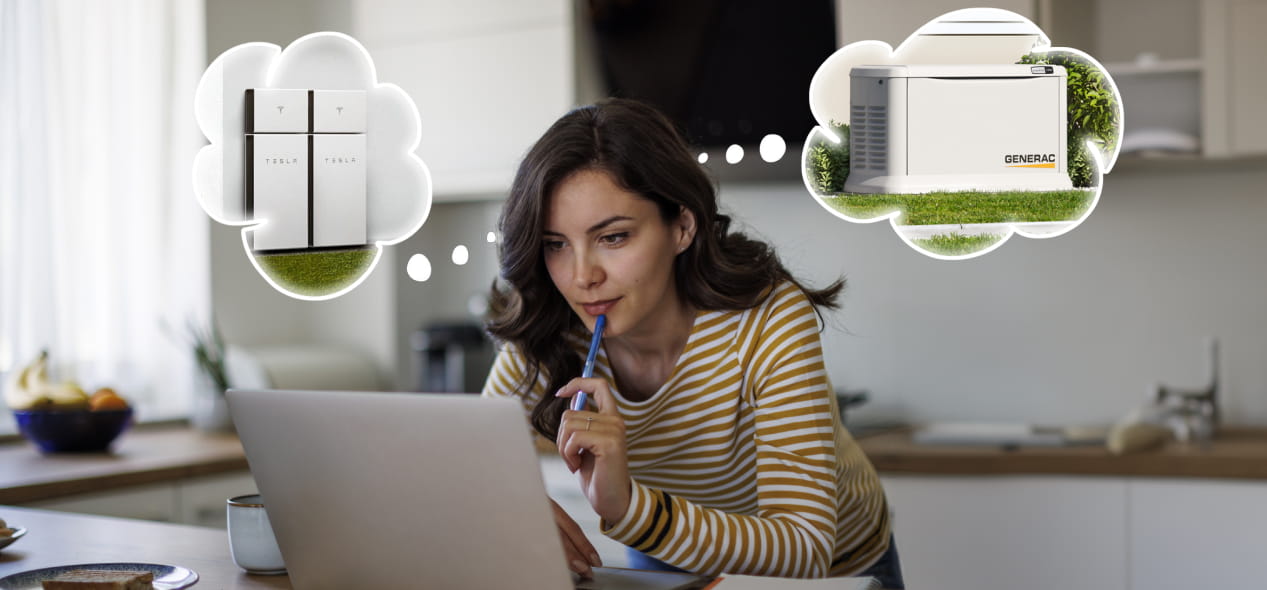
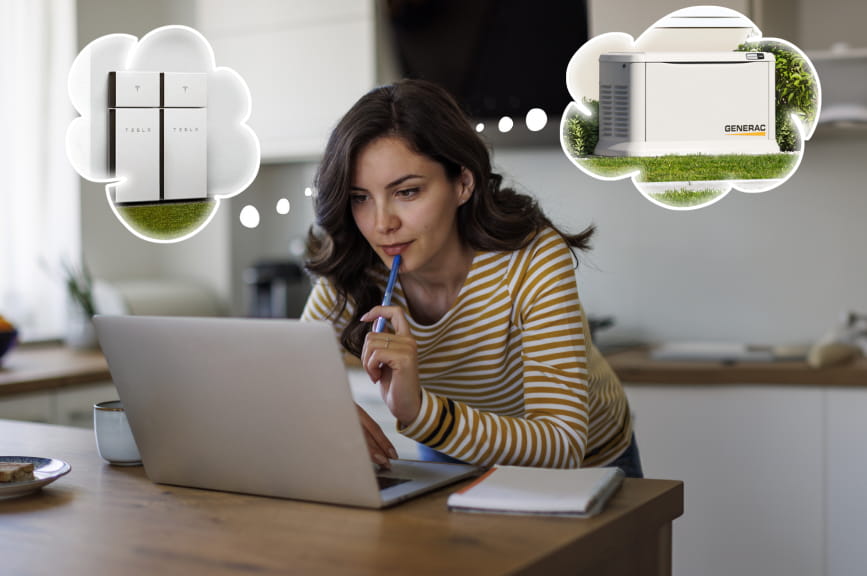
Maintaining power during an outage is crucial. There are a few ways to do this, depending on your needs.
Nobody wants to sit in the dark, devoid of AC on a sweltering summer evening while food spoils in the fridge. Aside from the inconvenience, a massive power outage can create dangerous conditions for homeowners. As extreme weather causes power outages to trend higher, it’s more important than ever before to take control of your power supply and gain greater energy independence.
Not only do backup power options help your lights and appliances stay on during a power interruption, but reducing your reliance on the grid can also save you money. If your utility uses a time-based rate structure, you’ll see electricity prices surge during periods of peak demand. With a backup power source, you can use your stored energy during these on-peak hours and avoid paying higher utility rates.
Two of the most reliable sources of backup power on the market today are home backup generators and solar batteries. Ideal for outages and peak demand pricing, these options each have a unique set of pros and cons. The backup power source best for you and your family will depend on a slew of factors, which we’ll cover below.
What is a Home Backup Generator?
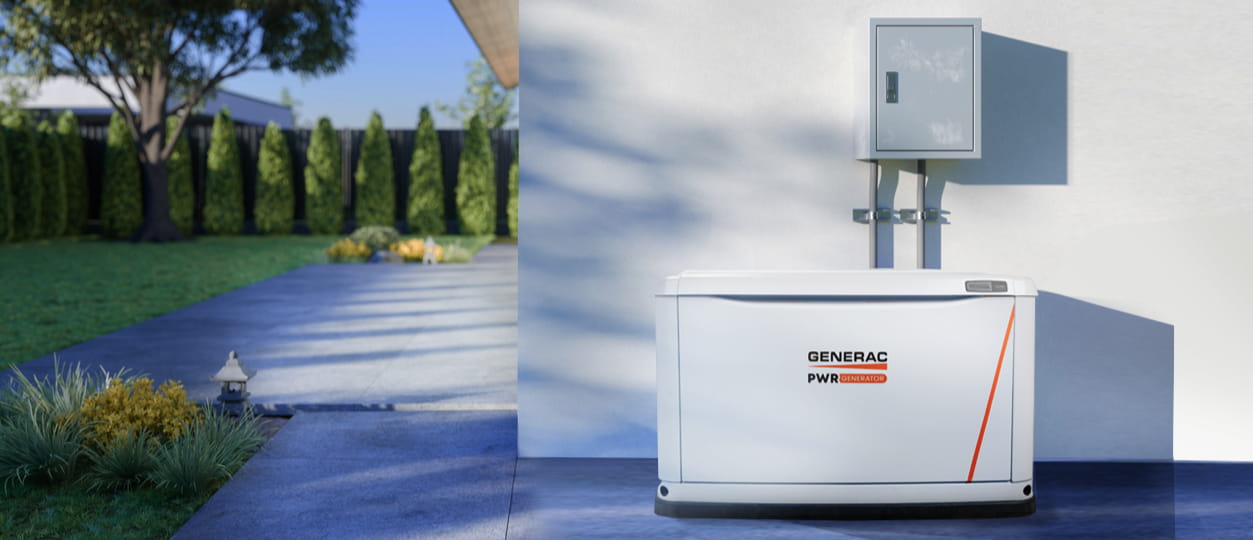
A home backup generator, also called a standby or whole-home generator, is a stationary power source installed outside of your home by a professional. Designed to turn on automatically when you lose power, a home backup generator taps into your home’s fuel line and can run for days or weeks on a full tank of propane — or indefinitely on natural gas.*
Portable vs. Permanent Generators
There are notable differences between permanently installed home backup generators and portable generators, which are typically fueled by gasoline. Costing as little as a few hundred dollars, portable generators are small and can be moved to wherever they’re needed. This power source is not wired directly into your home’s electrical panel, and typically supplies a limited amount of power compared to permanent backup generators.
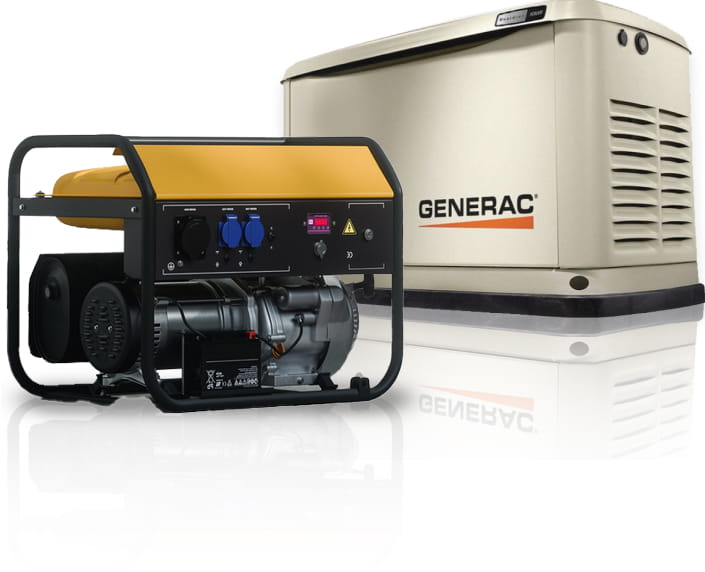
Learn more about the differences between portable and standby generators.
What is Solar Battery Backup?
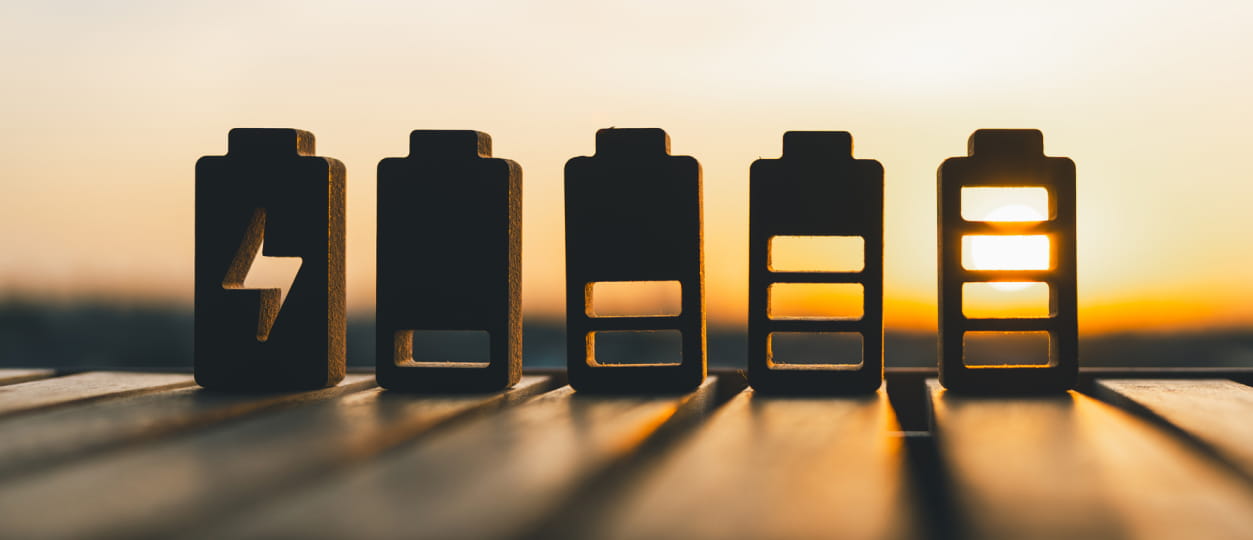
A solar battery is a storage device, wired to your solar system and electric panel, that allows you to store the surplus energy that your panels produce. Why would there be a surplus? Solar electric panels convert photons from sunlight into electrical energy you can use to power your home — but this only occurs during the day. Therefore, any solar beyond what you can immediately use must be stored somewhere (or sent back to the grid), otherwise you’ll lose it. With a battery, you can store this excess solar and save it for when you need it: at night, on a stormy day when production is low, or if the power goes out.
A solar battery can also be configured to provide dispatch when the price of electricity is high (during on-peak evening hours) or anytime your solar production is unable to meet your energy needs (during a rainstorm or heavy cloud cover).
Solar Battery Backup: Pros and Cons
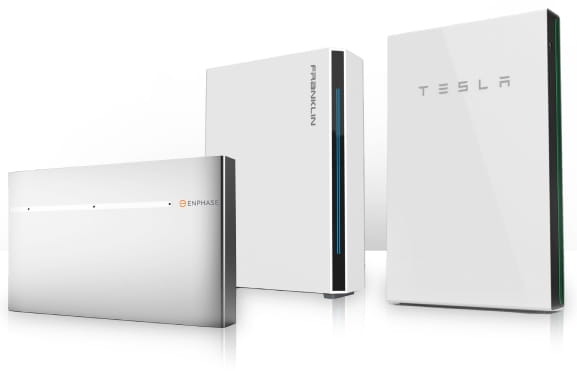
A solar battery is ideal if you already have solar panels on your property or are looking to install solar and storage together.
Power Duration: The size of your house, the size of your home solar battery, and how much energy you need will affect how long your battery backup system will be able to power your home. It could be overnight; it could be days. (Use this handy calculator for an estimate.) That’s why it’s important to talk to an expert before installing.
Adding load control can double the length of time your battery runs during an outage.
Installation: Solar battery backup for your home is typically wall-mounted and should be installed by a qualified contractor. In some states, such as California, a licensed electrician must now install all battery retrofits, while solar contractors may continue installing batteries as part of a solar plus storage system.* Your solar battery will be connected to both your solar and home electrical panel and can be programmed to turn off and on automatically, as power is needed.*
Fuel: Solar batteries are designed to power your home with clean energy from the sun. However, your battery may also be able to charge from the grid, depending on how it’s wired (AC-coupled vs. DC-coupled, read more here). When this is the case, your battery will be able to charge even if your solar panels aren’t producing.
Cost: A solar energy storage system for a medium-sized home usually starts around $10,000 (before installation) and increases for larger homes and those with greater energy needs.
A home backup generator offers continuous power as long as you have enough fuel. These last-resort power systems are noisier than solar batteries, but not nearly as loud as portable generators.
Power Duration: Because a permanently installed backup generator can be fueled by natural gas or another fuel source, it can run for an extended period of time during a power outage.* This can be important during a severe weather event or extended grid failure.
Installation: A home backup generator is typically housed outside in a durable metal casing, much like an air conditioning unit, and wired directly to your home’s electrical panel. It will automatically turn on if your power goes out.
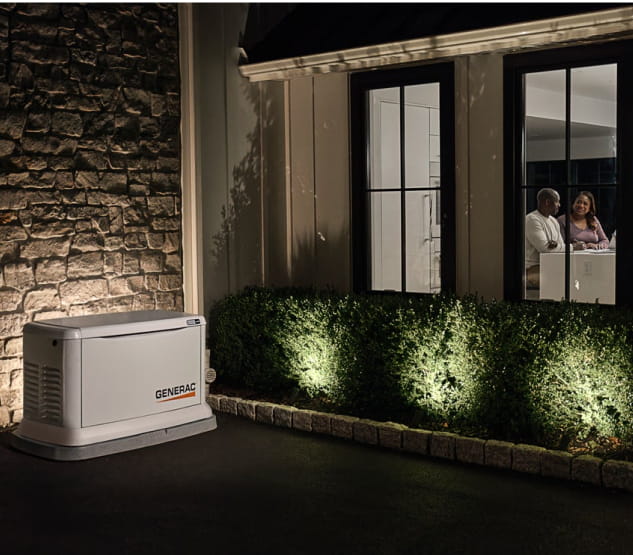
Fuel: Rather than using solar energy, a standby generator often relies on natural gas or propane. This is unlike a portable home generator that uses gasoline — which may be scarce during a disaster — to produce a limited amount of power.
Cost: The smallest standby generators cost around $2,000, but larger homes with more electricity needs and appliances will require larger, more expensive generators to reliably power all essential appliances and lights. These can exceed $20,000. It’s important to speak with a local dealer to find out what a home backup generator might cost, including installation.
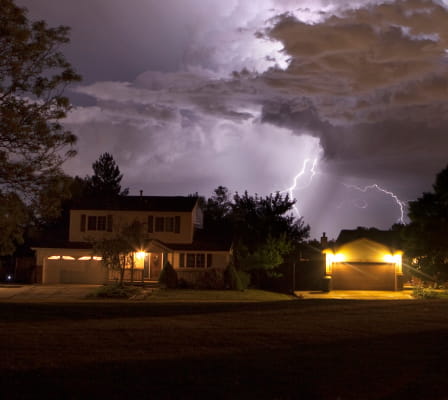
If you have a rooftop solar system but no backup option, then your house switches from solar energy to electricity from the power grid whenever the sun goes down.
Homeowners who want to rely less on the electrical grid for daily power can install a battery that collects, stores, and uses renewable energy to provide power at night, for example. Solar with battery backup is also an ideal source of power during an outage, so you’re getting double the benefit with a single solution.*
If you simply want to be prepared for an unexpected power outage, a permanently installed home generator — powered by an independent fuel source — will give you that protection.*
Many people seeking the ultimate level of stability have paired both a home energy storage system with a home generator. This combines the ability to use solar power, day or night, with the safety net of a generator that can provide power for your home when the electrical grid is down and the solar battery is depleted.

It’s wise to boost your home’s energy resilience if you live in a state that is subject to:
- Power outages, like California and Texas
- Hurricanes, like the Gulf Coast or Eastern Atlantic states
- High winds, like in the Plains states
- Tornadoes, like in the Central and Midwest states
If you already have solar or are thinking about solar and live in one of these regions, then solar + battery storage is a smart choice. If your power has gone out even once in the past 12 months, it’s a good idea to think about broadening your protection by adding a standby generator.
Maybe solar electric panels aren’t an option for you. Say you’re restricted by your HOA or you live in the woods without ample sunlight on your roof. In these cases, opting for a standby generator is a proactive way to help keep the lights on during an outage.
If an outage is imminent and you don’t already have solar energy storage or a standby generator, try to get a portable generator and a container of gas before severe weather hits. Once the outage hits, shelves are often bare, and there may be a gasoline shortage. Severe weather may also cause icy roads or flooding, making it impossible to get to the gas station. You can be sure of one thing: You’ll be better-prepared next time. And as extreme weather events are likely only to increase, there will be a next time.

